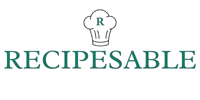TABLE OF CONTENTS :
- How Many Net Carbs Are in Cottage Cheese?
- What Are Net Carbs?
- How Many Net Carbs Are in Different Types of Cottage Cheese?
- Cottage Cheese in a Keto Diet
- How to Choose the Best Cottage Cheese for a Keto or Low-Carb Diet
- Delicious Keto-Friendly Cottage Cheese Recipes
- Recent Recipes
- FAQs: Cottage Cheese and Keto
How Many Net Carbs Are in Cottage Cheese?
Cottage cheese is a widely loved dairy product, known for its high protein content, creamy texture, and ability to be used in a wide variety of dishes, from savory to sweet. For those following a low-carb or keto diet, understanding how many net carbs are in cottage cheese is critical to ensuring it fits into daily carb limits. This article will explore the net carb content of different types of cottage cheese, explain how to select the best options, and how cottage cheese can be an excellent addition to your low-carb lifestyle.
What Are Net Carbs?
Before diving into the carb content of cottage cheese, it’s important to define what net carbs are. The concept of net carbs is crucial for anyone following a low-carb or keto diet, as net carbs are the carbohydrates that directly impact your blood sugar levels.
Net carbs are calculated by subtracting fiber and sugar alcohols from the total carbohydrates in a food. This is because fiber and sugar alcohols have little to no impact on blood sugar levels.
Net Carbs = Total Carbohydrates – Fiber – Sugar Alcohols
Many low-carb dieters track net carbs instead of total carbohydrates because it gives a more accurate picture of how the body processes the carbohydrates in food.
How Many Net Carbs Are in Different Types of Cottage Cheese?
The amount of net carbs in cottage cheese varies depending on the type of cottage cheese and the brand. There are multiple varieties of cottage cheese available, including full-fat, low-fat, and non-fat versions. Here is a breakdown of net carb content for each type of cottage cheese:
1. Full-Fat Cottage Cheese
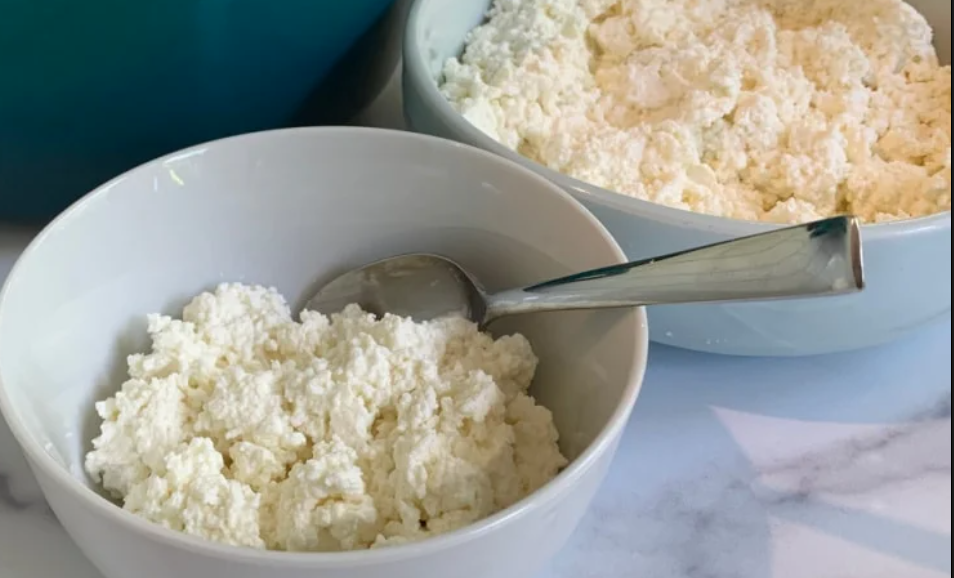
Full-fat cottage cheese is the best choice for those on a keto or low-carb diet. It contains more fat, fewer carbs, and is often preferred for its rich and creamy texture. On average, 1 cup (approximately 225 grams) of full-fat cottage cheese contains:
- Total Carbohydrates: 6g
- Fiber: 0g
- Net Carbs: 6g
- Fat: 10g
- Protein: 25g
- Calories: 220
Full-fat cottage cheese is ideal for keto because it provides more fat to help maintain the high-fat, low-carb macronutrient ratio that is key to staying in ketosis.
2. Low-Fat Cottage Cheese
Low-fat cottage cheese is often chosen by individuals looking to reduce calorie and fat intake. However, it tends to have a higher carb count due to the removal of fat and, in some cases, the addition of milk solids to improve texture. 1 cup of low-fat cottage cheese contains:
- Total Carbohydrates: 8-10g
- Fiber: 0g
- Net Carbs: 8-10g
- Fat: 5g
- Protein: 20g
- Calories: 180
While still usable on a low-carb diet, low-fat cottage cheese should be consumed in moderation as its higher carb count could affect your daily net carb goals.
3. Non-Fat Cottage Cheese
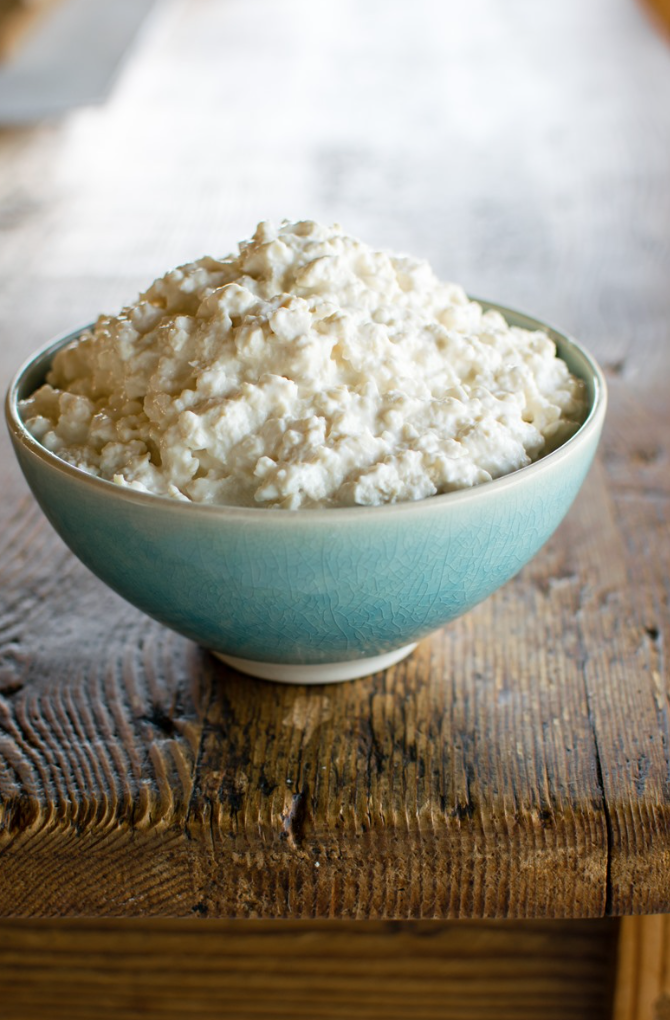
Non-fat cottage cheese has the highest carb content of all varieties. It is typically not recommended for a keto or strict low-carb diet. 1 cup of non-fat cottage cheese contains:
- Total Carbohydrates: 10-12g
- Fiber: 0g
- Net Carbs: 10-12g
- Fat: 0g
- Protein: 14g
- Calories: 120
Non-fat cottage cheese lacks the fat needed to maintain ketosis, and its higher carbohydrate content makes it less suitable for those strictly counting net carbs.
Cottage Cheese in a Keto Diet
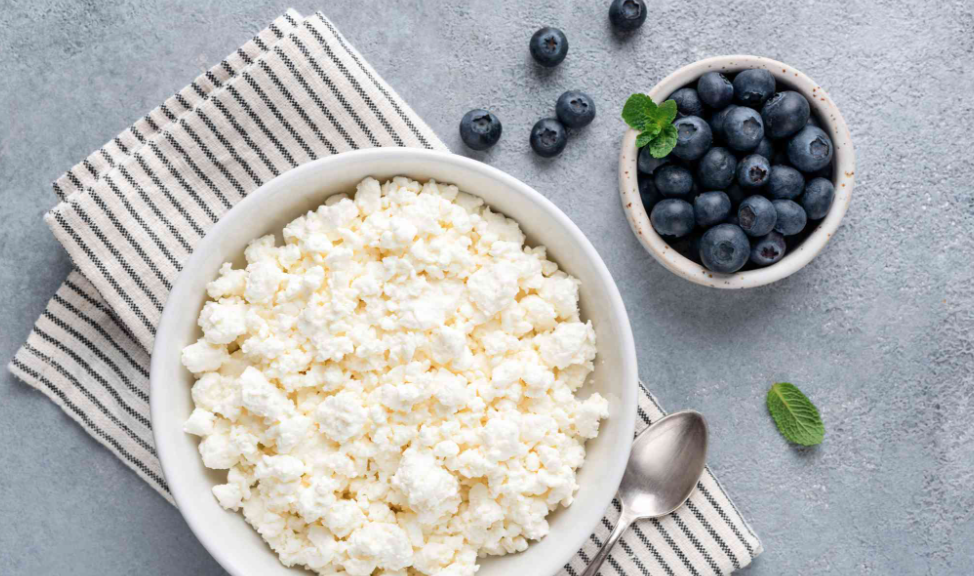
Despite containing some carbohydrates, cottage cheese is still a highly popular choice for those on a keto diet. Here are some reasons why it’s a great option, even if it contains moderate carbs:
1. High in Protein
Cottage cheese is loaded with protein, which is essential for maintaining muscle mass, especially during weight loss. On a keto diet, protein helps ensure you are burning fat rather than muscle while staying in ketosis.
Cottage cheese is often used as a go-to protein source because it’s quick, easy to prepare, and fits into many keto meals or snacks.

2. Low in Calories and Fats (for Full-Fat Varieties)
While non-fat and low-fat cottage cheese have higher carbs, full-fat cottage cheese has the right balance of low carbs and healthy fats. The fat content in full-fat cottage cheese helps satiate hunger and keeps energy levels steady throughout the day without spiking blood sugar levels.
3. Packed with Essential Nutrients
Cottage cheese is rich in nutrients like:
- Calcium: Important for bone health and muscle function.
- Vitamin B12: Essential for energy production and brain health.
- Phosphorus: Important for maintaining healthy bones and teeth.
These nutrients make cottage cheese not only a great option for hitting your macronutrient targets but also for supporting overall health.
How to Choose the Best Cottage Cheese for a Keto or Low-Carb Diet
When choosing cottage cheese, it’s essential to pick the right type that fits your macros and doesn’t add unnecessary carbs. Here are a few tips to help you make the best choice:
1. Always Choose Full-Fat Cottage Cheese
Full-fat cottage cheese is the best option for keto because it contains the most healthy fats while keeping carbs low. Avoid low-fat or non-fat varieties, which are higher in carbs and don’t offer the same satiating benefits.
2. Read the Labels Carefully
Some brands of cottage cheese may add sugars or stabilizers that increase the carbohydrate content. Always read the nutrition label to check for hidden sugars and ensure the product fits your daily carb count.
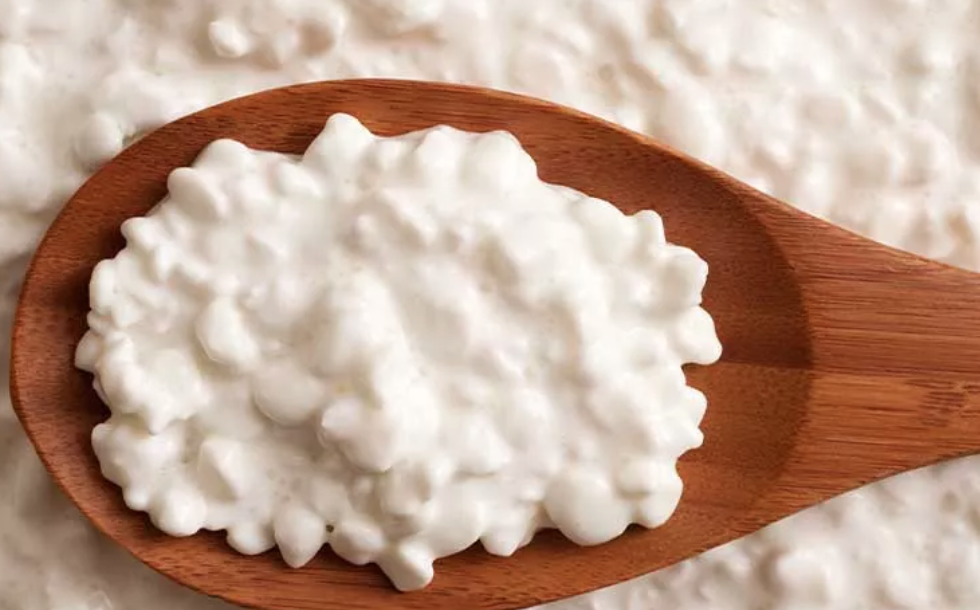
3. Avoid Flavored Varieties
Many flavored cottage cheeses, such as fruit-flavored or sweetened versions, contain added sugars that significantly raise the carb count. Stick with plain, unsweetened versions to stay within your net carb goals.
4. Portion Control
While cottage cheese can be part of a low-carb diet, it’s important to monitor portions. Even full-fat cottage cheese contains 6g of net carbs per cup, so be mindful of how much you eat to avoid exceeding your daily carb limit.
Delicious Keto-Friendly Cottage Cheese Recipes
Incorporating cottage cheese into your keto meals is easy due to its versatility. Here are some creative ideas to help you include cottage cheese in your diet while staying within your carb limits.
1. Keto Cottage Cheese Pancakes
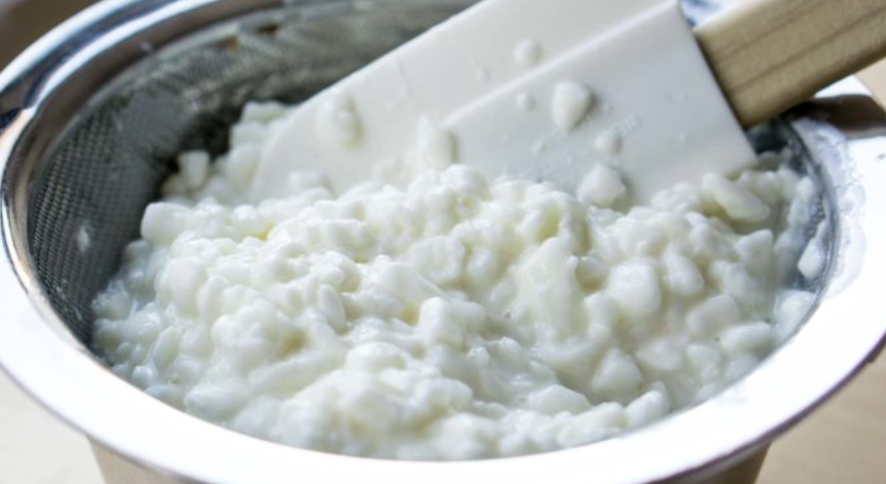
These pancakes are fluffy, low-carb, and packed with protein. Using almond flour and cottage cheese as the base makes them perfect for a keto-friendly breakfast.
- Ingredients:
- ½ cup full-fat cottage cheese
- ¼ cup almond flour
- 3 large eggs
- 1 tsp vanilla extract
- Pinch of cinnamon
- Instructions:
- Blend all the ingredients until smooth.
- Cook on a greased skillet over medium heat until bubbles form, then flip and cook until golden brown.
2. Cottage Cheese and Avocado Salad
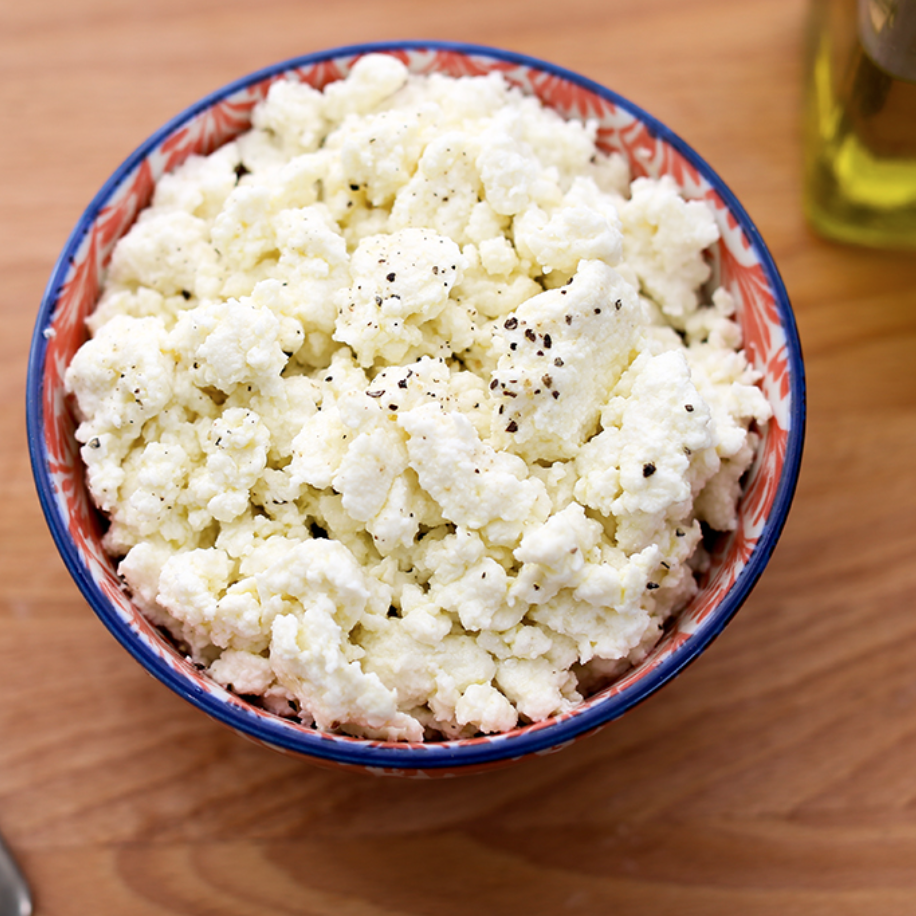
A simple, fresh salad that’s packed with protein, fiber, and healthy fats. This is a great low-carb lunch option.
- Ingredients:
- ½ cup full-fat cottage cheese
- 1 ripe avocado, diced
- 1 cup spinach or mixed greens
- 1 tbsp olive oil
- Salt and pepper to taste
- Instructions:
- Mix all the ingredients together in a bowl and drizzle with olive oil.
- Season with salt and pepper and serve.
3. Cottage Cheese and Berries
For a quick keto snack or dessert, pair cottage cheese with a small portion of low-carb berries like strawberries or raspberries. Add a handful of chopped nuts for extra healthy fats and crunch.
Recent Recipes :
FAQs: Cottage Cheese and Keto
1. Is cottage cheese keto-friendly?
Yes, full-fat cottage cheese is keto-friendly when consumed in moderation. It is low in carbs and high in protein, making it a great addition to the keto diet.
2. Can I eat cottage cheese every day on a keto diet?
Yes, as long as you monitor portion sizes and track your daily carb intake. Cottage cheese can be eaten regularly as part of a balanced keto diet.
3. What is the best cottage cheese for keto?
Full-fat cottage cheese is the best option for keto. It provides the right balance of protein and fat while keeping net carbs low.
4. How much cottage cheese can I eat on keto?
It’s best to limit cottage cheese to 1/2 to 1 cup per serving to avoid going over your carb limit. One cup contains approximately 6g of net carbs.
5. Is flavored cottage cheese suitable for keto?
No, flavored cottage cheese often contains added sugars and sweeteners that increase the carb count. Stick with plain, unsweetened varieties to stay keto-friendly.
